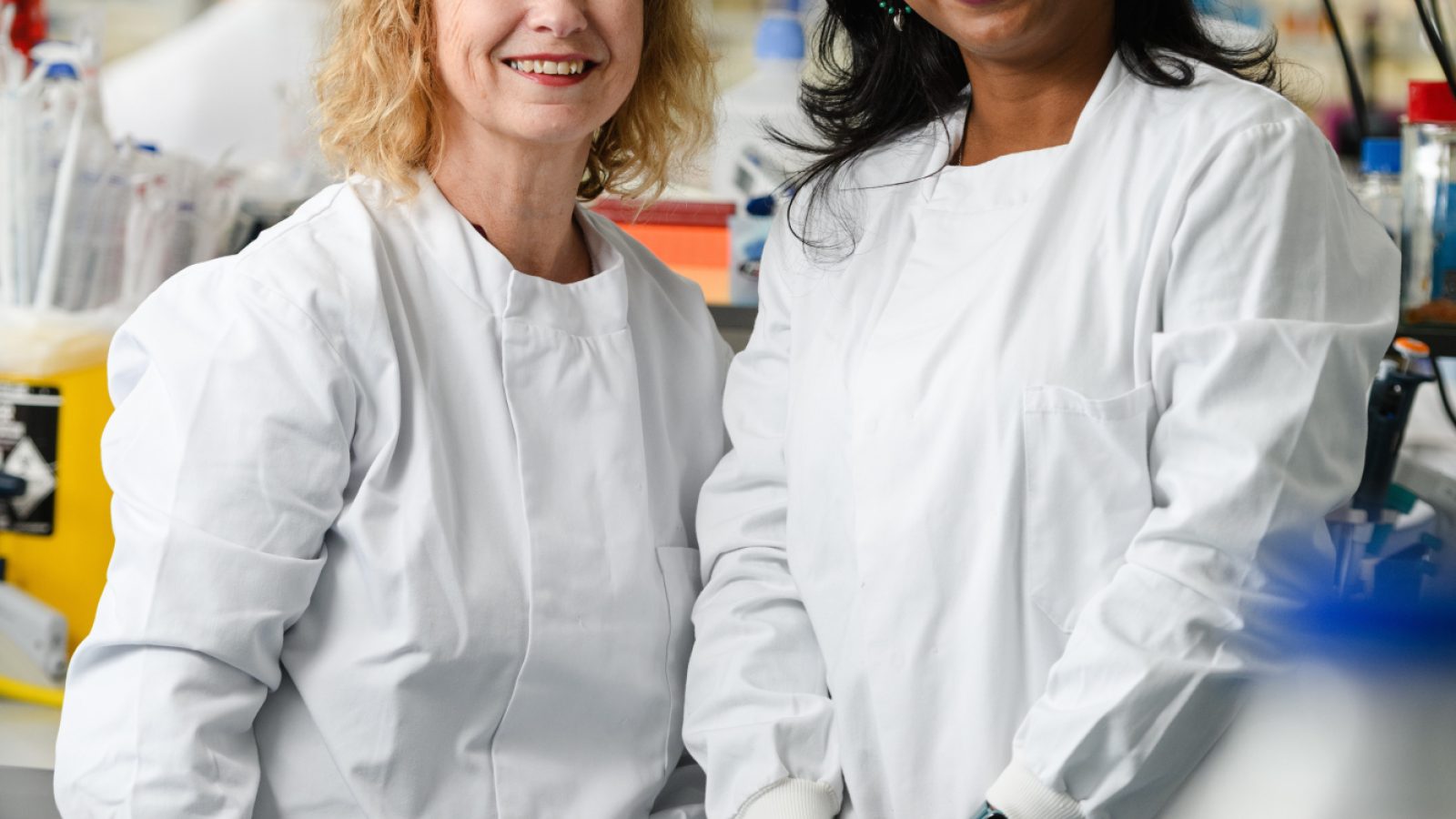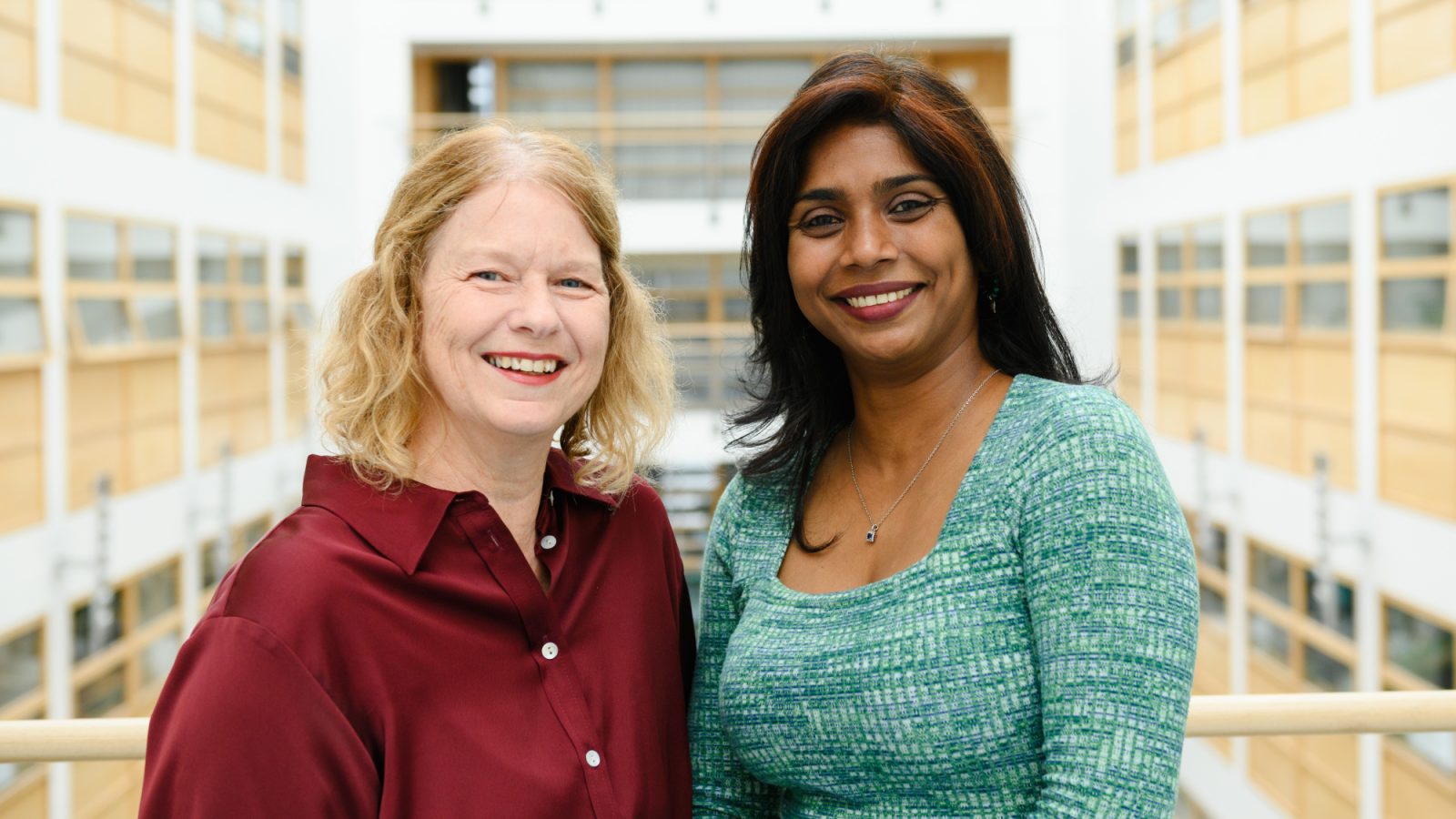The University of Aberdeen today announces the launch of a new spin-out company developing novel immunotherapies to combat invasive fungal infections.
Brigid Bio was founded by the University’s Professor Carol Munro, a medical mycology expert in the Aberdeen Fungal Group, with Dr Soumya Palliyil and Professor Andy Porter, innovators in antibody generation who lead the Scottish Biologics Facility.
The company is developing new treatments that use antibodies to fight dangerous fungal infections, especially those that are resistant to current medicines. These antibodies recognise a broad range of fungal species and boost the body’s immune system to fight off the infection.
“This is a significant step forward in our mission to bring innovative science out of the lab and into the world,” said Professor Carol Munro, co-founder and Chief Scientific Officer of Brigid Bio. “Invasive fungal infections are responsible for over three million deaths annually. With growing resistance to the limited number of existing drugs, we believe our technology has the potential to transform the healthcare of critically ill patients around the world.”
“With advances in medicine, there are growing numbers of patients who are at high risk of these infections including immunosuppressed organ and stem cell transplant recipients, cancer patients and those undergoing abdominal surgeries. Not to mention those with blast wounds from modern warfare and terrorism.”

(L-R) Professor Carol Munro and Dr Soumya Palliyil
Dr Soumya Palliyil, co-founder and Chief Executive Officer, said: “There is a huge and urgent unmet clinical need to develop safer antifungal therapies with reduced toxicity that can combat the increasing rise of drug-resistant pathogens. Currently there are only three main classes of antifungal drugs used in the clinic and fungal pathogens can be resistant to one and sometimes two different classes, leaving clinicians with a very limited choice of therapy to treat these life-threatening infections.
“Our fully human antibody therapies are safer as we naturally make antibodies as part of our defence mechanism. They work by boosting the patient’s own immune responses by recruiting phagocytic cells to clear the infection.”
‘’The clinical challenge when treating systemic, life-threatening fungal infections is how to kill the fungus without killing the patient. This is because fungal cells are a similar cell type to our own,” added Professor Andy Porter, Chief Technical Officer.
“Our patent protected drug discovery platform enables the identification of novel, pan-fungal drugs targets, unique to the fungus, and therefore absent from human cells. Using biologics techniques, currently transforming the treatment of cancer and autoimmune disorders, we have raised human antibodies to these targets and are developing their potential as a long-lived and powerful antifungal therapy.”
The spin-out has received early-stage funding and support from Scottish Enterprise, Innovate UK ICURe, the University of Aberdeen and INCATE. This funding was instrumental in building up a team of experts, advisors and to bring on board the Executive Chairman Chris Jones, who has been pivotal in helping the team reach this spin-out milestone.

Professor Carol Munro and Dr Soumya Palliyil
The very early stage research was funded by SULSA (Scottish Universities Life Sciences Alliance) and PhD studentships from MRC Centre for Medical Mycology, EASTbio DTP and University of Aberdeen. Brigid Bio team also acknowledge the support of Opportunity North East through Business Development training provided to Professor Munro and Dr Palliyil. The female co-founders have also received awards from Converge Challenge business competition and Scottish EDGE.
Brigid Bio is actively pursuing further investment and partnerships to bring these novel antifungal immunotherapies to the clinic. Brigid Bio is initially focused on antifungal therapies against Candida species, with plans to expand into mould and rarer infections.
“We are very pleased to have supported the Brigid Bio founders through to spin out,” said Dr Ann Lewendon, Commercialisation Manager within the University’s Research and Innovation Office. “Reaching this milestone exemplifies the excellence and impact of research at the University of Aberdeen and its potential to make a global impact.
“We have a strong commitment to entrepreneurship and innovation as key drivers of regional prosperity. By supporting the growth of life sciences and other high-potential sectors, the University seeks to empower the next generation of researchers, founders and industry leaders - strengthening the region’s role as a hub for scientific and economic advancement.”